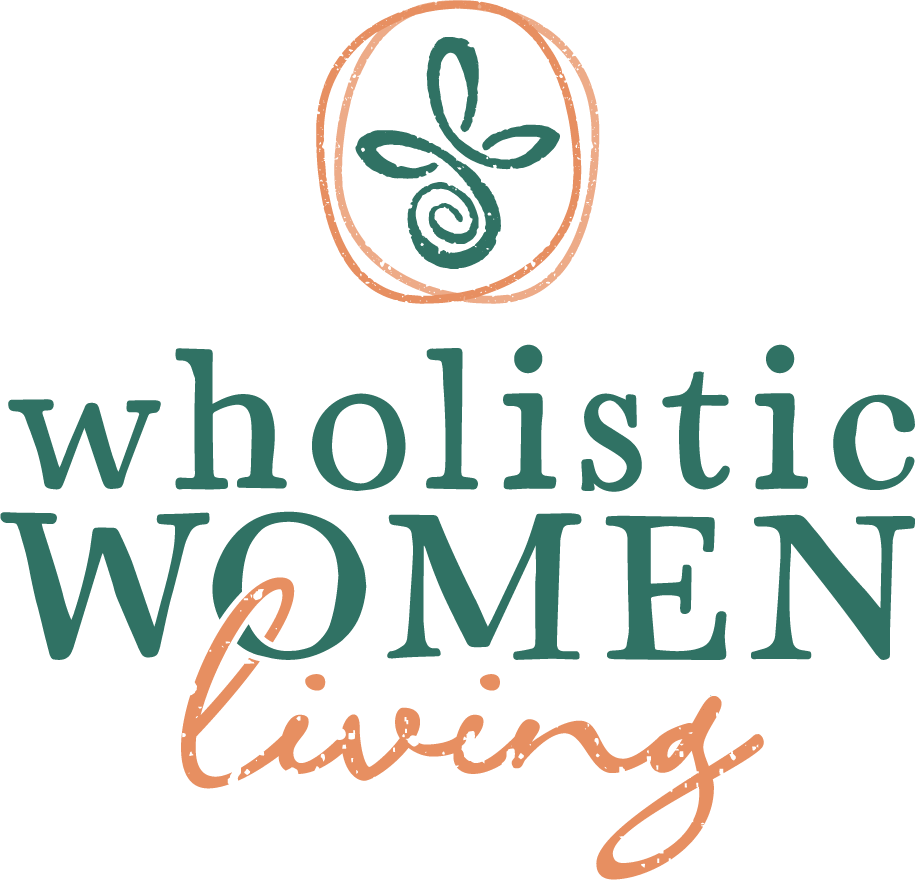
by Jane Helm | Jul 8, 2019 | Finances, Personal Development
Start Boosting Your Savings Now!
We’ve all heard the saying. “a penny saved is a penny earned,” but why aren’t we able to save more? The reasons (or excuses) can be varied-some of us are overextended, meaning we are paying out more than we are taking in; for others, it may be a bad case of FOMO (fear of missing out) and for others, it may not seem important.
According to a recent Vanguard study, a majority of Americans have less than $5,000 in their emergency fund. My recent experience with an unforeseen injury proved to me that we all need to bump up our own savings rate. My injury has cost me dearly, both physically, emotionally and FISCALLY! When totaling up the money that I have spent on deductibles and co-pays, I can share that I have spent over three times the five-thousand-dollar figure! One injury, one unforeseen emergency can easily derail a savings fund!

Here are some tips to boost your savings account that center around your everyday habits:
- Set a savings goal. How much do you need to cover an unforeseen emergency? A suggested initial amount is the total of three months of all of your fixed expenses. These expenses include the “must haves:” your rent or mortgage, auto loans, utilities, food, and your current financial obligations. Keep your emergency savings in a separate savings account so you can track your progress and earmark it for emergency use only
- Bring your lunch to work instead of eating out: The cost to make your lunch is approximately $2.00 vs. the $7.00 for the average lunch eating out. The saving s of $5.00 every weekday is $25.00 a week or $100.00 a month!
- Brew your own cup of coffee to go rather than buying t on the way to work. If you spend a minimal amount of $2.00 each workday on your cup of joe, you are out $10.00. By incorporating this new habit, you can put away $40.00 a month!
- Take time to evaluate your cell phone plan: are you paying for data that you’re not using? It makes sense to review your minutes and data and lower the plan limits if possible.
- If you are trying to pay off credit card debt, incorporate a strategy and stick to it! There are several strategies that can help you pay off your debt: The “Ladder Strategy”, the “Snowball Strategy”, and the “Emotional Trigger Strategy.” Decide which strategy best suits your needs and plan to incorporate this into your monthly budget.
- Review your cable bill! How much are you paying to watch TV? Consider a lower cost streaming service to save hundreds over a year!
- Go back and review your spending on eating out. How much have you spent in the past month eating out because you were too tired, overwhelmed or just didn’t feel like cooking dinner? Try cutting this amount in half!
- Our spending on food also includes grocery shopping. This is a part of the budget that can always use some tweaking! I suggest creating a meal plan before you go to the grocery store: plot out five meals at a time. Then, write down all of the ingredients you will need for those meals. This will eliminate multiple trips to the store, where you may find yourself buying more than you anticipated. To maximize this step, make a map of your grocery store and then make your list accordingly. No more wandering down aisles that you don’t need to visit-this will save you time and money!
- How many emails are you getting daily from retailers? You probably signed up for an initial discount offer and now your inbox is full of daily special sales! Each one of these is designed to tempt you to part with your money-simply unsubscribe!
- Marie Kondo (“The Art of Tidying Up”) has started a movement of purging our homes! Look around your home-what are you not using? Consider selling items to raise some extra cash!
- Here is one of my favorite tips: SAVE YOUR CHANGE! I have been doing this for years! The little amounts you are putting away can definitely add up! Every year, my vacation spending money has been funded by this habit!
These tips can be easily incorporated into your daily life and will allow you to begin the habit of saving more for your emergency fund. Knowing that you can cover unexpected expenses is a foundational step in building financial confidence!
Today’s Author: Jane Helm is the Principal of Money Mentor Group. As a wealth coach, Jane combines decades of financial services experience with a degree in social work and psychology to bring positive financial change to her client’s lives. She is a Partner Coach with the Wholistic Coaching Coalition and co-founded the Build Your Own Business networking group. Jane can be reached via email at [email protected]

by Casey Clark | Jul 1, 2019 | Health, Nutrition, Personal Development
Every single day we eat and every single one of us eats the amount we do largely because of what is around us. Setting things like emotional and stress eating aside, we often overeat because of family, friends, colors, packaging, plate size, smells, distractions, containers and even the way we set up our kitchen and dining room tables. This list of invisible influences goes on and on.
Invisible? Yes! Most of us are unaware of all of the factors that influence our eating and those that keep us from being in the moment while we eat so that we can pay close attention to how hungry we are, when we get full, what mood we’re in, how good our food tastes and just how much we’ve consumed.
As we all know, increased food consumption typically results in weight gain. If you consume just 3,500 calories, that equals a pound no matter if you consume it all together or over a week. You can revisit my previous blog and learn more about that and the mindless margin. So if increased food consumption often results in weight gain and mindful eating helps us reduce food consumption, wouldn’t that mean that mindful eating can be used for weight loss? Not exactly!
What Mindful Eating Is
Mindful eating is less about what you eat and more about how you eat it. “Ronald Reagan once said, ‘You can tell a lot about a fellow’s character by his way of eating jelly beans’.” Are you one who eats only the flavors you love, eats them all at once or only eats a few and saves the rest? The way you eat them says a lot about the relationship that you have with food.
Mindful eating encourages us to become fully present with food and aware of our relationship with it. We begin to notice if we hide certain things, like jelly beans, when we eat them, if we wolf food down until our stomach hurts or if we avoid some foods like the plague. The more aware you become of your eating habits, the more likely you are to change them and to accept your body for what it does, especially that it has an inherent ability to guide us.
Don’t Mix Mindful Eating and Weightloss
When we mix mindful eating and weight loss, we tend to bring the conflict that we have with food to the surface. We get frustrated because we try to be “mindful” of the carbs we’re eating and don’t lose weight, we try to be “mindful” and drink more water and don’t lose weight. The fact of the matter is, we first have to understand ourselves – heart, mind, body, and spirit.
We have to be connected with ourselves enough to know that there are several other factors that contribute to weight loss and gain. Mindfulness is a tool used to help enhance that connectivity. It helps us learn to be still in all areas of life. Still enough to hear the small things like birds chirping, to be present with the ones we love, to recognize when we have triggers or glimmers in our day-to-day. The connection in our body is a foundational tool that is needed to be able to recognize when that extra slice of pizza puts us over the edge or all that caffeine in the morning causes us to crash in the afternoon which in turn requires more caffeine. With mindfulness comes awareness and with awareness comes a knowing of yourself that you may have never experienced.
I invite you to join me to learn more about yourself, mindful eating and how it can help you in all aspects of your life at our July evening retreat. You will find that practicing mindful eating will bring you much more joy and allow you to live a balanced and fulfilled life.
Today’s author: Casey Clark is a partner coach with Wholistic Woman Coalition. She manages a health and wellness practice, Heaven On Earth, which is a community for those looking to get inspired and give inspiration to anyone on their own health and wellness journey. Having made significant changes to her lifestyle over the past 2 years to live a more holistically fulfilled life, Casey understands the importance of self-care and having a community to get support from. Join the community and get some inspiration or become a guest blogger at www.aheavenlyyou.com.

by Donna Kettell | Jun 26, 2019 | Personal Development
We’re always hearing about the benefits of exercise, hydration, and healthy eating. I think we can all agree that these are some of the key ingredients in a healthy life. I also believe that fun and meaningful connections are key ingredients as well. They are food for the soul and help us lead our best lives.
When life gets busy, finding time for fun and meaningful connections become even more important. These are not optional ingredients… they are key ingredients! When we don’t have enough, we can feel sad, lonely, overwhelmed and isolated. Sometimes it’s the small pleasures that keep moving us forward each day.
Being part of a book club is one of those small pleasures for me. I love to read and enjoy it, even more, when I can share the joy of a well written, insightful book with others who have also read it. It’s like a delicious meal or a really amazing movie – they’re always better enjoyed with others!
I especially like to read non-fiction personal growth books. The non-fiction book clubs that I’ve been a part of have helped hold me accountable for putting what I’ve read into action. I also really enjoy gaining insights from what the other book club members have to say. Different perspectives are always enlightening.
I’ve recently discovered the benefits of virtual book clubs. These are groups that meet through technology instead of in person. A VIRTUAL book club is a great option when life is busy or geography is an issue – you can join your book club Zoom call easily and from anywhere at all, including your vacation, with your comfy clothes on, sipping a cool drink on your deck, make-up off, and hair pulled up in a ponytail, if you’d like! All you have to do is connect on your laptop or your phone and you have an instant book club community! That definitely meets my criteria of a small pleasure!
#1 HAVE SOME FUN!… It’s always enjoyable to get together in a casual setting and talk about a great book!
#2 GAIN NEW INSIGHTS… Book clubs expand your personal views and allow you to gain new insights that you may not have considered on your own.
#3 COMMUNITY AND CONNECTION… Book clubs offer you an opportunity to connect and get to know other women better in your community and beyond
#4 ACCOUNTABILITY… I often buy books that I don’t get around to reading as quickly as I would like. A book club can create some accountability to finally read the whole book!
Sound like something you would enjoy? Then you are in luck!
I am excited to announce that Kettell Coaching will be partnering with Wholistic Woman Retreats to launch a Summer Virtual Book Club, beginning Monday, July 29 based on the book, Micro-Resilience by Bonnie St. John and Allen P. Haines.
Click here for details and registration information
Here’s to a summer of fun, meaningful connections, and simple pleasures!
Today’s blog was written by WWR Partner Coach, Donna Kettell. Donna is a certified professional coach (CPC) and a master practitioner in energy leadership (ELI-MP). Her certifications were earned through The Institute for Professional Excellence in Coaching (iPEC), which is accredited by the International Coaching Federation (ICF).

by Kat Middleton | May 15, 2019 | Personal Development, Self-Care
COMPASSION
Kristen Neff has defined self-compassion as being composed of three main components–self-kindness, common humanity, and mindfulness.
She says self-compassion involves acting the same way towards yourself when you are having a difficult time, fail, or notice something you don’t like about yourself. Instead of just ignoring your pain with a “stiff upper lip” mentality, you stop to tell yourself “this is really difficult right now” how can I comfort and care for myself in this moment?
Instead of mercilessly judging or criticizing yourself for various inadequacies or shortcomings, self-compassion means you are kind and understanding when confronted with personal failings-after all, whoever said you were supposed to be perfect?
Please practice cultivating gentle, loving-kindness towards yourself as a way of being more self-compassionate.
SPACE
A continuous area of expanse, which is free, available or unoccupied.
There have been times in my life I needed some space. A weekend getaway, walk through the woods, riding in the car playing my favorite tunes or just to being in a room all by myself.
Who remembers the Rodgers & Hammerstein’s Cinderella 1965 song that went like this…In my own little corner, in my own little chair, I can be whatever I want to be. There is such freedom in that chair.
When was the last time you allowed yourself some space?
GRACE
Is the spiritual freedom that arises from living in harmony with yourself, others, and with the entire world. ~Unknown
A virtue coming from God.
Mercy, pardon, favor, privilege, kindness, courtesy, approval, dignity, temporary exemption, honor, beauty, elegance, harmony, charm and divine love.
My 2019 One Word is Grace. I believe grace allows for our Wholistic heart, body, mind, and spirit to all be in full alignment bringing JOY to the world and all those in it.
What does Grace mean to you?
SELF-CARE
The practice of taking an active role in protecting one’s own well-being and happiness, in particular, during periods of stress.
I would like to share a blog that I think is well written. I credit Tracie Nichols with these wise words:
Recently I saw a social media post about self-care steps someone was taking after coming through an intense few weeks inviting folks to talk about the way they were taking care of themselves.
Not surprisingly, an impressive list of messages, nature rambles, spiritual experiences and the like followed.
What was surprising to me was the mixed set of reactions I felt when reading them.
There was my usual surge of “go you!” appreciation for people truly caring for themselves. I also felt exhausted and overwhelmed at the thought of trying to attempt any of these truly beautiful self-care practices myself. And then came an ache of aloneness and an alarming pulse of shame. (Shame?)
You see, my life right now is a storm of worry and off the charts stress. There are hard, hard things happening for 2 people I love. 2 people who are inextricably woven into the fabric of my daily life. People for whom I have a foot and a heart in the role of caretaker.
I’ll pause here to let you (deeply kind, so very compassionate and caring folks) no I’m OK. I know you’re all wise in the ways of healing and self-love and I’m not asking you to do the labor of offering advice (with a gentle appreciation for any who had that impulse). I simply offer this snapshot of my life to give you a bit of context So what I’m saying next about self-care makes sense.
Since a lot of my work centers around helping people Cultivate resilience, my aversion reactions to this post gave me this ghostly sense of being an outsider in a space I typically call home.
That pulse of shame? She’s there because “I know this stuff and I should be doing better.” which is hogwash, of course. But As I am sure you know when our resilience is stretched rice paper thin, that’s when our inner monsters stage their coup.
Hello, monsters… Nope. You don’t get to take over ‘t get to take over…
So right now…
~because it’s all very intense and utterly beyond my control
~because it’s swampy with all the feelings, especially grief
~because my time isn’t my own – or doesn’t feel as if it is
~because the weight of this is bringing me to my knees – sometimes literally
~because massages and painting classes and long walks and silent retreats feel mythical. Unreachable. A climb up Everest in flip flops.
…my version of self-care looks like
- Remembering to eat.
- Breathing a quiet “yes!” when it’s veggies rather than donuts.
- Wearing the softest, most comfy clothes I own.
- Embracing unplanned naps.
- Stopping by a park for 10 minutes between transportation runs, rolling down the windows and breathing. Getting out of the car optional. Walking optional.
- Wrapping my hands around a warm Cup of tea. Breathing.
- Letting plans – for my business and life – go dormant for a bit.
- Holding schedules – for my business and life – gently and loosely.
- Whispering “I love you. You’ve got this.“ when I catch a glimpse of myself in random reflective surfaces.
- Kindness and patience when none of these work.
- Kindness when the patience fails.
- Retroactive kindness when the kindness fails.
So, here’s my invitation to you this time: take a moment to notice the state of your resilience. And, if it feels nurture nourishing, whisper “I love you. You’ve got this.” when you catch a glimpse of yourself in random reflective surfaces. Saver how that feels. Build yourself a sweet well of self-love to draw on when life gets hard.
HUMOR
The quality of being amusing, comical or funny.
Humor is the gift we give ourselves but one that takes a little bit of work. We must look for the humor in every situation and use it to gain perspective, reduce stress and make others laugh and smile. When was the last time you had a good belly laugh?
About today’s author: Kat Middleton is an Empowerment Coach who is passionate about her work and advocates for authentic wholehearted living both personally and professionally. She is a Certified Professional Coach and Occupational Therapy Practitioner who loves working with people holistically; helping others to help themselves see things through new filters. Kat joined the Wholistic Woman community in September of 2017. She is very excited to learn, grow, and have much fun with this AMAZING group of women. Kat is available for private one-on-one coaching as well as group workshops, seminars, and speaking events.

by Jane Helm | May 7, 2019 | Group Coaching, Personal Development, Professional Development
Brené Brown says “True belonging doesn’t require that we change who we are; it requires that we be who we are.”
Group coaching allows you to be who you are in a group of like-minded people–the ones who are faced with similar challenges and goals. As a participant, you become part of a dynamic form of learning, where you will help others while receiving the support and encouragement from professional coaches and your fellow group members.
Here are some of the powerful benefits of group coaching:
- Shared wisdom: Group coaching provides an opportunity to discuss your dreams and goals with similar people and share ideas. It also provides an opportunity to learn from the insights and contributions of others. The learning that occurs in a group from listening to other members’ stories, ideas and concerns provide an insightful mirror for your growth.
- Accountability: Group coaching brings an element of accountability to others. This is an awesome motivator when you come to each session to discuss your progress and achievement of goals and the barriers to achievement with others who are empathetic and supportive. You receive constructive feedback from multiple sources, which enriches your own development. Group coaching holds you accountable while still giving you time and space to reflect.
- Opportunity to build authentic friendships: Group coaching allows you to make new connections and form authentic friendships with others. It gives you an opportunity, and confidence to explore ways to enrich personal connections. It enhances your own compassion, empathy. By listening to others’ stories, you gain an understanding of your own unique story.
- Increase your motivation: This type of coaching is a great motivator. Women often feel exhausted and overwhelmed. Knowing you have the support from other participants as well as from professional coaches will offer the encouragement you need. It builds confidence, and motivates you to keep going with reaching your goals!
- Finding your Tribe: By getting to know other group members on a personal level and developing trust with them, you will belong to a group, growing your network of relationships that enrich your life. This type of bonding amongst group members who offer mutual support can act as a powerful catalyst for change.
- Affordability: maybe private coaching is out of your financial comfort zone. Group coaching is an affordable option, where you will experience the power of coaching at a fraction of the cost!
At Wholistic Woman Retreats, we like to meet you where you are and offer you opportunities for personal and professional growth. We hope you will consider our group coaching offers as an opportunity to enhance your life while forming new relationships with like-minded women.
As a wealth coach, Jane combines decades of financial services experience with a degree in social work and psychology to bring positive financial change to her client’s lives.

by Donna Kettell | Apr 30, 2019 | Personal Development, Retreats
Do you ever wake up and plan to accomplish a lot, only to find yourself completely exhausted midway through the day? Some days feel like we are in the midst of a whirlwind and I am sure I am not the only one that feels that I could dial up the healthy choices when those days occur. For me, that usually means that I need to get on a track that feels more balanced and calmer. At those times, we often think about improving our nutrition or carving out more time for an exercise routine, which are great ideas and bring a long term payoff.
However, have you ever considered a resilience makeover? What do I mean by that? When I think of the word resilience, I think about the ability to bounce back from all that life throws at us. What’s a makeover? Well, have you ever had a makeover of a room in your home? It might involve hanging a beautiful new picture, or just simply rearranging your furniture. The purpose of any kind of makeover is to refresh and bring you a new sense of joy… A resilience makeover is similar to a makeover in one of the rooms of your home. The room is probably fairly functional as it is, but it could use some new life breathed into it! Typically a makeover doesn’t have to take much time or money but quickly changes the way you feel about that room.
The same could be true with a resilience makeover. We can redesign our lives the same way we redesign our homes. And, resilience is what I like to refer to as a life accessory. Just like great artwork or fun throw pillows are accessories in a room of your home, resilience is an accessory that makes life easier, more fulfilling, and joyful. And, I think we are all always on the search for anything that brings those things our way!
You may already feel that you are a pretty resilient person. Perhaps you have been through a tough health scare, the death of a loved one, issues surrounding your children, marriage, or job that have caused you to be tested and stretched. And, perhaps you have come through those very difficult situations, rising about the challenges to return back to normal again. That is the traditional definition of resilience. Webster defines resilience as the “ability to recover from or adjust easily to misfortune or change”. Think of someone you know who is really resilient, and my guess is that you will think of someone who has gracefully come through an experience that has been fairly life-changing.
I’ve always considered myself to be a resilient person. My friend Patrice once told me that she admires that I don’t get stuck in the muck. That was her way of saying that she feels that I don’t tend to allow life’s challenges to make me feel stuck for too long. However, after reading Bonnie St. James’ and Allen P. Haines’ book, Micro-Resilience, I came to realize that resilience is a muscle we can build every moment of every day, not just in times of life’s greatest challenges. In fact, the word “micro” refers to small changes, small shifts in our behavior. And, the book proposes that even very small changes can make a huge difference in one’s focus and energy throughout each day.
If you are like me, there are days that I just don’t feel that I am effectively focusing on the things I want to get done, or lack the energy to do all the things on that to do list. In fact, some days, I start out feeling motivated and then something happens that takes the wind out of my sails, and it’s challenging to get that ball rolling again. Sound familiar at all? The concept of micro-resilience addresses this exact issue.
Micro-resilience strategies are easy techniques that can assist you in recovering more quickly from the seemingly small challenges that inevitably come our way throughout each day. Daily small challenges may seem insignificant individually, like a dishwasher that breaks unexpectedly, or the frustration of sitting in traffic as you barely make your appointment on time. However these small things can add up over the day causing us to feel completely exhausted, asking ourselves, why am I so tired right now? It’s just a “normal” day today.
If this sounds familiar, you may find yourself ready to tackle a resilience makeover! On Wednesday, May 29th, I’ll be facilitating our Be Resilient event. I’ll be sharing several quick, practical science-based strategies which, when used, can immediately combat the daily energy drains that zap your energy and leave you feeling exhausted. We’ll discuss strategies to avoid mental exhaustion, and increase your brain’s effectiveness, including the use of laser focus rather than multitasking. We’ll talk about tips to combat worry and anxiety, and techniques for embracing more positivity. We’ll talk about ways to refuel and refresh your body for peak performance, and we’ll touch on renewing your spirit by tapping into your purpose and a state of “flow”, a concept made popular by author Mihaly Csikszentmihalyi, in his book entitled, Flow.
I have been trying out many of the 21 different strategies outlined in the book Micro-Resilience over this past year and can tell you confidently, that they are improving my ability to tap into a high level of energy and focus each day. Each day gives me new opportunities to fine tune my new approaches, and I have been enjoying the journey. I look forward to sharing more about these powerful strategies with you on Wednesday, May 29 so you might begin a resilience makeover of your own!
Today’s blog was written by WWR Partner Coach, Donna Kettell. Donna is a certified professional coach (CPC) and a master practitioner in energy leadership (ELI-MP). Her certifications were earned through The Institute for Professional Excellence in Coaching (iPEC), which is accredited by the International Coaching Federation (ICF).
Page 4 of 11« First«...23456...10...»Last »







